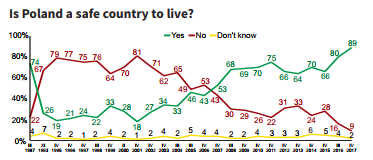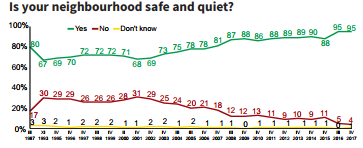Poles feel safe; this is evident in recent research by CBOS which shows that 89% of the population declares Poland is a safe country and 95% claim their neighbourhoods are inviolable and free from danger. On top of this 60% of respondents said they were not afraid of being a victim of any kind of offence and only 14 percent states they have been a victim of theft over the past 5 years. Isn’t this idyllic? Yes; but it arguably leaves many Poles a little credulous, especially when faced by cybercrime.


Without a doubt, it makes Polish online users less alert: a third never change their passwords and a quarter don’t have any antivirus software installed on their devices, according to research conducted by the Europ Assistance Group.
Yet, the threat is growing. In comparison to reported cybercrime incidents in 2014, you can see a 20% growth in such incidents in 2015 – and these are only formally reported cases.[1]
The conclusion? Even if people know they should protect themselves online (and all available sources confirm they do), they continue to adopt very basic security precautions because they think they’re safe.
If security companies do not effectively communicate their cybersecurity solutions to private and business clients, they won’t sell. People simply do not actively search for solutions unless they have been struck by a cybercrime incident.
Security companies therefore need a different approach with the right set of communication tools. A simple press release blast used to work (and to some extent still works), but only as a campaign starter.
PR is far more complicated than it used to be in the past. Effective PR today requires incorporating a whole array of digital tools to reach out directly to the client. It’s not enough to prepare a catchy story, you also need to use ad networks, analytics tools and remarketing techniques. And all the tools are here; you can even self-service them. However in many cases marketers just burn a whole lot of cash with literally no results, other than improving Facebook’s, Google’s and LinkedIn’s financial results.

Effectively communicating cybersecurity solutions to those who need them is what Sotiria achieves. Having worked for various software and hardware security companies, (including Trend Micro, G DATA, Acronis, Flowmon/Invea-Tech and Balabit amongst many others), we understand how to reach Polish customers and can deliver either locally or globally-reaching campaigns. With shared cybersecurity PR knowledge and expertise, Sotiria knows how to use digital tools and how to reach desired customers.
[1] Within the Internal Security Agency a special team for cybercrime in 2015 has reported 8914 cybercrime incidents (7498 in 2014).
